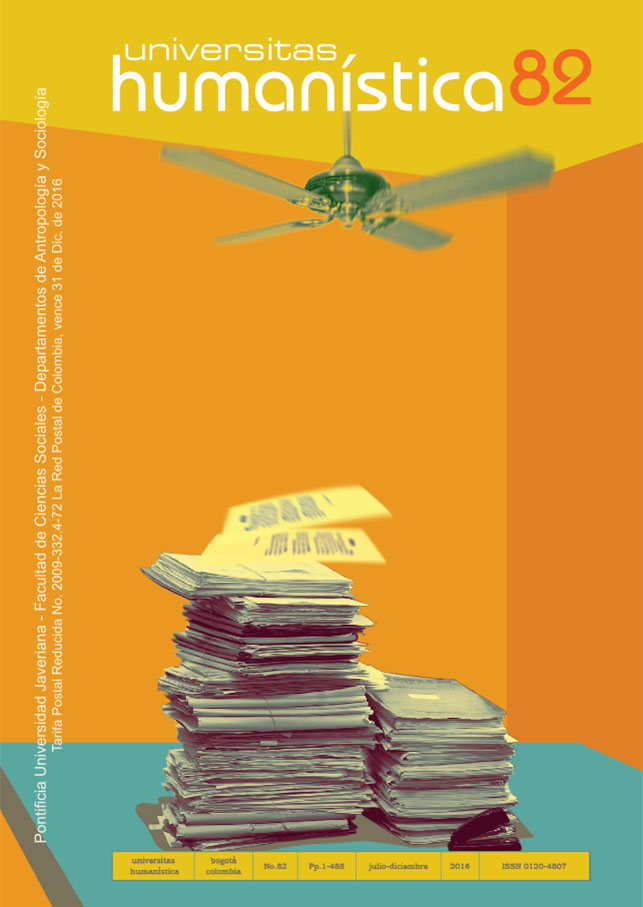Abstract
Between 1950 and 1980 the Colombian state institutions underwent an accelerated modernization process reflected on the bureaucratic reorganization and public policies that had a deep impact on society and shaped the future of the relationship between government and citizens. In this article we will focus our attention on a power supply policy related to cooking on gasoline-powered stoves which had a painful impact on Colombian society, as it led to over four decades of burn victims. The text covers a study with a topic and approach which articulate social and anthropological perspectives that make evident the physical and moral costs of the modernization of the nation. We aim to develop a critical approach based on the notion of device regarding a phenomenon that, until now, had not been studied in Colombia. For this purpose we carried out a qualitative analysis that had the press of the time, interviews with surviving actors, and statistical data as primary sources.

This journal provides immediate open access to its content on the principle that making research freely available to the public, encourages greater global exchange of knowledge.
The journal Universitas Humanística is registered under a Creative Commons Attribution 4.0 International Public License. Thus, this work may be reproduced, distributed, and publicly shared in digital format, as long as the names of the authors and Pontificia Universidad Javeriana are acknowledged. Others are allowed to quote, adapt, transform, auto-archive, republish, and create based on this material, for any purpose (even commercial ones), provided the authorship is duly acknowledged, a link to the original work is provided, and it is specified if changes have been made. Pontificia Universidad Javeriana does not hold the rights of published works and the authors are solely responsible for the contents of their works; they keep the moral, intellectual, privacy, and publicity rights.
Approving the intervention of the work (review, copy-editing, translation, layout) and the following outreach, are granted through an use license and not through an assignment of rights. This means the journal and Pontificia Universidad Javeriana cannot be held responsible for any ethical malpractice by the authors. As a consequence of the protection granted by the use license, the journal is not required to publish recantations or modify information already published, unless the errata stems from the editorial management process. Publishing contents in this journal does not generate royalties for contributors.


